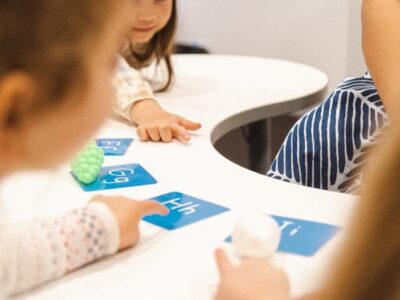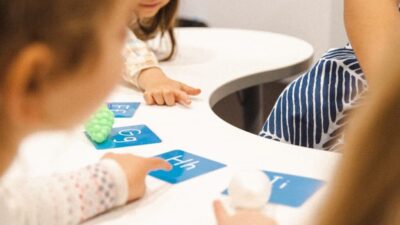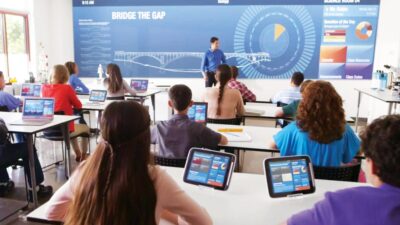The advent of artificial intelligence (AI) has ushered in transformative changes across various sectors, with education standing out as a prime beneficiary. In the realm of multilingual education, AI’s impact is particularly profound, offering tools and methodologies that were unimaginable a few decades ago. This technology has not only enhanced the way languages are taught and learned but has also made language education more accessible and tailored to individual needs.
Revolutionizing Language Learning Through AI
AI in multilingual education serves as both a facilitator and an innovator. It provides educators and learners with intelligent applications that assist in language acquisition, from personalized learning experiences to real-time language practice environments. AI-powered programs can analyze the learner’s performance, adapt to their learning pace, and provide customized feedback, making the learning process more effective and engaging.
One of the most significant contributions of AI to language learning is its ability to break down geographical and linguistic barriers. Virtual classrooms powered by AI can connect students from different parts of the world, allowing them to interact with native speakers and practice their language skills in a culturally immersive context. This exposure is invaluable as it offers a practical understanding of the language, which goes beyond vocabulary and grammar to include cultural nuances and idiomatic expressions.
Enhancing Language Learning with Netflix
In the landscape of AI-driven language education, various tools and resources have emerged to make learning more dynamic and enjoyable. An interesting development in this field is the use of entertainment platforms like Netflix for language learning. This approach integrates entertainment with education, providing a rich, contextual platform where learners can engage with languages in a relaxed and enjoyable setting.
Language learning with Netflix utilizes the vast array of multilingual content available on the platform to help learners immerse themselves in different languages through films and series. This method not only makes learning more appealing but also allows learners to hear languages used in natural settings, which enhances listening skills and improves pronunciation.
The benefits of learning languages with Netflix are manifold. It offers a flexible learning schedule where users can learn at their own pace and choose content that matches their interests and learning levels. Moreover, Netflix’s extensive library of international content exposes learners to diverse dialects and accents, broadening their understanding and appreciation of the language.
Jolii.ai: Pioneering AI in Language Learning
A notable initiative in this field is Jolii.ai, which aims to redefine language learning through AI. This platform exemplifies how AI can be leveraged to create more effective and engaging language learning experiences. Jolii.ai’s approach includes using AI to curate personalized learning paths, provide real-time corrections, and offer insights into language usage patterns. Their mission to break language barriers worldwide is a testament to the potential of AI in creating a more interconnected and multilingual world.
The Future of AI in Multilingual Education
As AI continues to evolve, its role in language education is set to become more pivotal. Future advancements are likely to introduce more sophisticated AI tools that can provide deeper insights into language learning processes and offer even more personalized learning experiences. The integration of AI in language education not only enhances cognitive skills but also fosters global connectivity and understanding.
The fusion of AI with tools like Netflix language learning illustrates a future where education is not just about knowledge acquisition but also about building bridges across cultures. As we embrace these technologies, the promise of a more linguistically inclusive world becomes increasingly attainable, making the dream of global communication without barriers a closer reality.













Comments